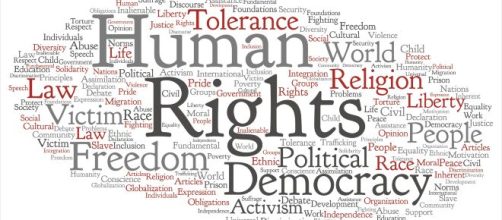The human being needs protective rights to live happily and pave his existence. From the beginning of human history, the man strived for his independence against nature and emancipation and freedom through these struggles for achieving the necessary freedom. This struggle paved the way for the concept of human rights. The worthy feature of human rights is that it is difficult to define but impossible to neglect. Human rights denote all those rights which are ingrained in our nature and without which humans cannot live. These rights are vital for human dignity and can enjoy from birth to death.
Human rights also known in various terms as natural rights, fundamental rights, federal rights that have been in trend since olden times. The Human Rights [VIDEO] issue came to the spotlight only behind its drastic violation became frequent to the worst degree. As a significant salient feature, fundamental rights cannot be taken away by any legislature or any act of government.
This period starts with the arrival of the British empire. The rule of Indian administration started by the Britishers with the enlightenment of the Regulating Act of 1773. Under it, Indians were subdued by the Britishers in context to social, cultural, political & religious rights in all the aspects of life. Earlier Indians depict any rights.
Essential rights such as rights to life & livelihood, right to freedom, right to expression, right to equality, right to preach, everything was denied to them. The Indian leaders & public perceive that their rights had been devastated in the hands of the colonials, so they thought of veering back to fight for their rights. Perhaps the beginning demand for fundamentals rights appeared in the Constitution of India Bill 1895. The Bill guaranteed every Indian the right to expression, right to equality before the legislation, right to property, right to personal liberty, right to education.
The Bill comprised a list of seven fundamental rights
- Liberty of personage
- Freedom of conscience & free profession & practice of religion
- Free expression of opinion.
- Free elementary education
- Use of roads, common places, courts of justice & the like.
- Equality before the legislation, irrespective of consideration of nationality.
- No gender discrimination.
The resolution was passed in 1927, came into effect in May 1928, Motilal Nehru as its Chairman. As the Nehru Report shows closure that declared its first concern to Indians was “to secure the fundamental rights that had been denied to them.” Another accomplishment that came in context to the fundamental right was the Karachi resolution adopted by the congress session held in March 1931. That decade the emergence of fundamental rights increased related to the UN Assembly. So, after Independence, various laws made, suggestions came from the various committees to extend the concept of fundamental rights by comprising the entire mortal race.
Human Rights in the Indian Constitution can be found in the Preamble of the Constitution of India.
In addition to it, Part III- related to fundamental Rights
Part IV-Directive Principles core of the charter.
PREAMBLE: - an opening statement that gives the guiding plan & principle of the record.
Preamble stated:
We, the people of India, have solemnly resolved to constitute sovereign, socialist, secular, democratic, republic and to secure to all its citizens – justice, social, economic & political liberty of thought, expression, belief, faith & worship. Equality of status and of opportunity, and to promote among them all fraternity assuring the dignity of the individual & the unity & integrity of the Nation.
India is a parliamentary form of a government with a bicameral legislature
The president, elected by the elective college composed of the state assemblies and parliament, is the head of state, and the Prime minister is the head of government. Under the constitution, the country’s 28 states and nine union territories have a high credit of sovereign and have prime responsibility for law and orders.


